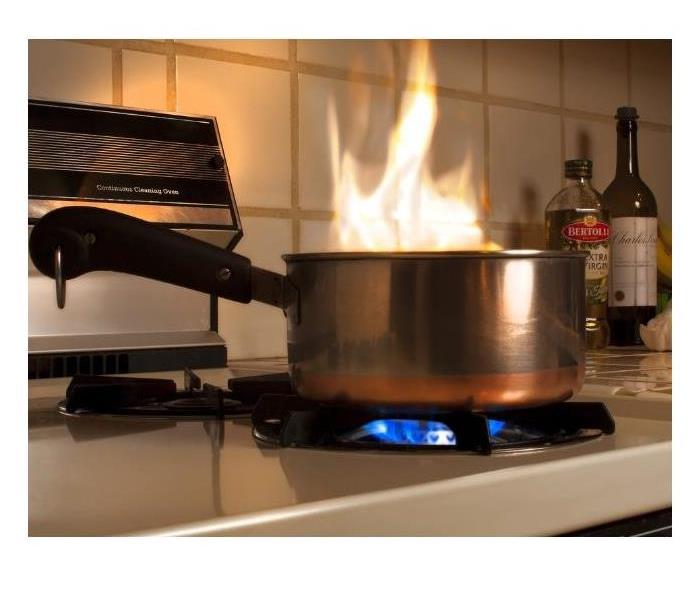Cooking Fires
10/15/2024 (Permalink)
Fires involving cooking are the number one cause of residential fires, and about 50% of these cooking fires involve grease. It is important to understand how to properly put these fires out, if possible, in order to help prevent further damage to your home.
- Never Use Water
- Putting water on a grease fire can cause the oil to splash and spread the fire to more areas of the home and cause serious harm to you as well.
- Turn off the Heat Source
- If the fire is small and you can do so without hurting yourself, turn off the stove, or if it is in the oven turn off the oven and leave the door closed.
- Cover the Fire
- Using a metal baking sheet or lid, cover the pan that is on fire. This will help reduce oxygen to the flames and hopefully help to extinguish the fire as quickly as possible. This is the same reason that you should not open the door to the oven if something catches fire in there.
- Putting Out the Flames
- If covering the fire with a pan or lid isn’t an option, you can use salt or baking soda to cover the fire and hopefully smother the flames. Be aware that it will take a lot of baking soda or salt to properly cover the fire and put it out.
- Fire Extinguishers
- If neither of the above methods work, you can use a fire extinguisher to put out the flames. Be sure to use a properly rated fire extinguisher. Class K extinguishers are meant specifically for putting out kitchen/grease fires and you should have one in your kitchen if you do not already in case of emergency. NEVER use a class A fire extinguisher on a grease fire as these are water based and can make the fire worse.
- Cleaning Up the Damage
- Even small fires are capable of covering your kitchen in nasty smelling smoke and soot residue. Particles of soot from animal fats and other food products are sticky hard to clean, and often require professional help to clean up.
If your home experiences a kitchen fire, Your local SERVPRO is here to help! Our team of professionals is always training in the latest techniques and technologies to help ensure that cleaning up your home after a fire is done in the most efficient and effective way possible.






 24/7 Emergency Service
24/7 Emergency Service
